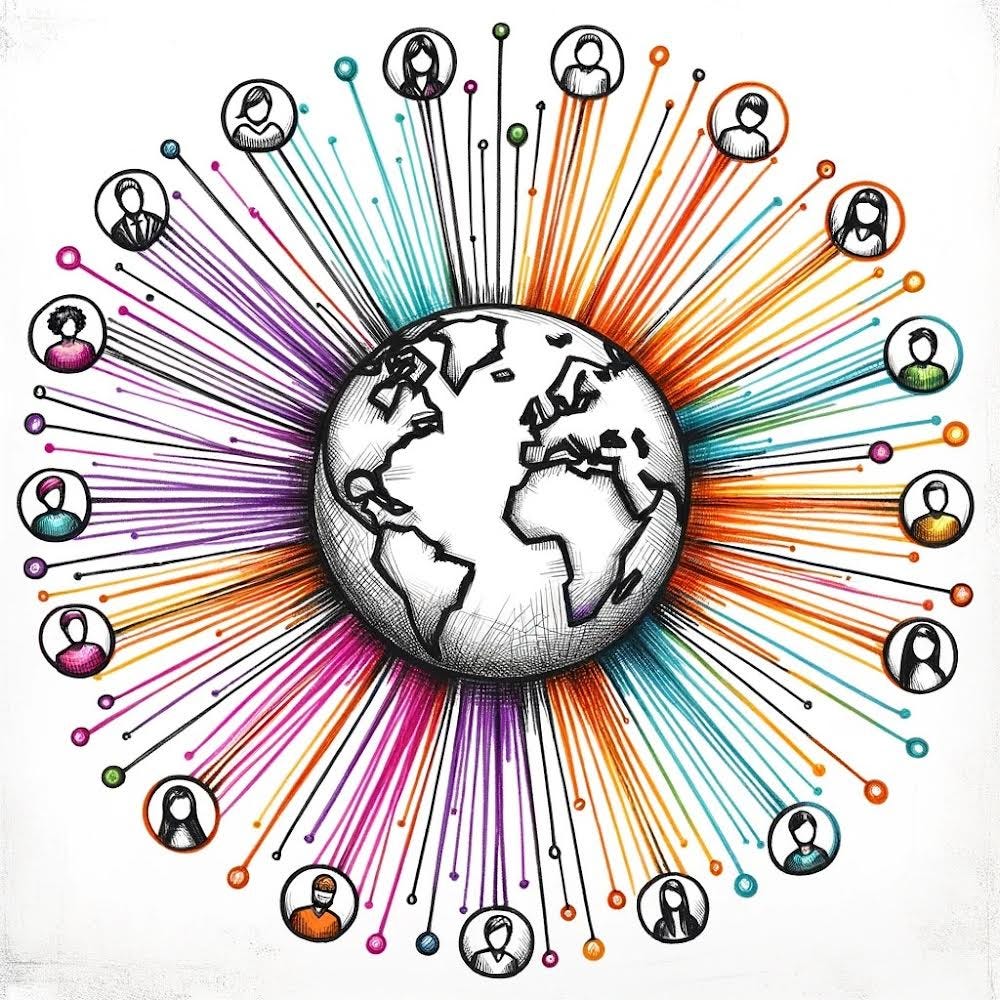Who's on Your Radar? Why Look for Unusual Suspects
The most remarkable shifts often emerge from the unlikeliest of individuals, ordinary people who dare to do extraordinary things - the ’Unusual Suspects’.
It’s tempting to assume that all noteworthy innovations stem from Silicon Valley’s elite or the boardrooms of multinational corporations, especially in the age of the internet where big winners have emerged, creating the world’s largest companies. Musk, Bezos, Zuckerberg, Jobs, Page, Gates et al are frequently (and at times frustratingly) cited as case studies for business leaders to learn from across the world.
But the reality?
Significant shifts in value creation often come from the most unexpected places. Many shifts in our digital landscape emerge from the unlikeliest of individuals - ordinary people who dare to do extraordinary things. These are ‘unusual suspects’.
These people fly under the radar. They go unnoticed. They are doubted.
That is until they successfully create a product, service, solution, or business that forever changes how a problem is solved, a market is served, or a business model is scaled.
Unusual suspects include:
William Kamkwamba1: as a teenager in Malawi, he built a windmill from scrap materials after seeing a picture in a library book. This wasn’t for a science project or to gain social media clout. He built it to power his family’s home and, later, to pump water for his village. William’s windmill changed his community, drawing attention to the possibilities of sustainable solutions even in resource-limited settings. He has since built a solar-powered water pump that supplies the first drinking water in his village and other wind turbines.
Shubham Banerjee: a middle schooler from California who transformed a toy LEGO kit into an affordable Braille printer. Recognizing the high cost of Braille printers, he used his ingenuity and available resources to make a difference for the visually impaired. His creation, Braigo2, challenges the notion that impactful tech solutions must be costly or complex.
Bruno Rondani: in Brazil, he launched 100 Open Startups3. This platform connects startups with large corporations, facilitating collaboration and innovation. But it’s not just another networking site. Its unique ranking system ensures that the best ideas rise to the top, regardless of who’s behind them. It’s democratizing innovation in its truest sense.
Marcin Jakubowski: from Poland, Marcin started Open Source Ecology4, a network of farmers, engineers, and supporters building the Global Village Construction Set, an open-source, low-cost platform that allows for the easy fabrication of the 50 industrial machines it takes to build a small, sustainable civilisation. His vision is not just for isolated innovation but for empowering communities globally to become self-sufficient.
Joy Buolamwini: born in Canada to Ghanaian parents and raised in the United States, Joy founded the Algorithmic Justice League5. Her work focuses on highlighting bias in artificial intelligence, advocating for fairer, more inclusive technology. She is challenging the global tech community to acknowledge and correct biases to ensure technology serves all people equally.
These are our unusual suspects. There are thousands more around the world.
In the digital era, the barriers to start a business, solve a problem, and scale a solution are reducing for anyone, anywhere with an internet connection. It is no longer vast resources, extensive funding, or elite education that determines who will revolutionize an industry. It is passion, perspective, and the drive to see a problem and tackle it head-on.
Each of the above figures saw a gap, a space where traditional leaders either weren’t looking or couldn’t find a solution. Yet, with resilience and innovation, they each carved a niche, created value, and, in doing so, changed the world around them.
We typically see business models seeking zero-sum, winner-takes-all outcomes. And yet, it is valuable to remember that the most transformative solutions might not come from the places we expect. Instead, they’ll emerge from garages, classrooms, and small community meetings. They’ll stem from the minds and hearts of the ordinary people with extraordinary visions. People with a drive to create win-win outcomes.
Let’s celebrate these unusual suspects. And, let’s find them.
They remind us that in the ever-evolving landscape of an interconnected, digital world, anyone - regardless of their location, background or resources - can make an indelible mark.
I believe that amplified ambition drives global goals. When we are inspired by ordinary people creating next, needed, new products, services, and solutions in the world, they reveal new pathways to achieve our ambitious goals.
Who’s on your radar, in your worldview, in your network?
Usual or unusual suspects?
An adapted version of this article was first published on ExO Insight.
Further Reading:
https://en.wikipedia.org/wiki/William_Kamkwamba
https://en.wikipedia.org/wiki/Braigo
https://bv.fapesp.br/en/pesquisador/97956/bruno-rondani/
https://www.opensourceecology.org/marcin-jakubowski/
https://www.media.mit.edu/people/joyab/overview/



Oh my goodness Soph - I want to interview all of them (and the many many other unusual suspects) immediately! Thanks for giving their stories a platform and getting their brilliance in my orbit.
Hi Sophie, You did it again!!! Bringing these kinds of brilliant initiatives to the front. You have a super quality to find and open the shells that are hiding precious pearls. Beautiful examples that boost hope, inspiration and laying stepping stones to make the world better! Love it!!! Paul